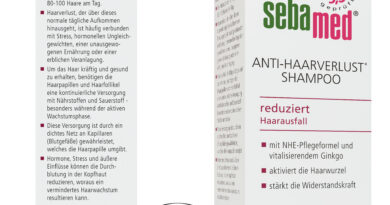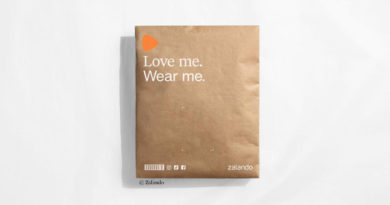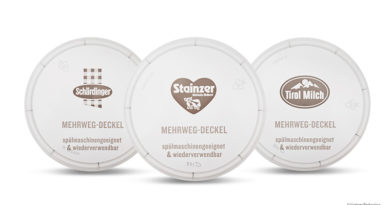“Customers are proudly queuing up with their containers”
Everyone is currently talking about alternatives to disposable dishes and preventable plastic packaging. Some butcher shops, such as the Picard butcher shop in Obertshausen, are also trying to play their part in environmental protection and are largely eliminating plastic film and bags. Picard uses a deposit system for returnable containers.
In April, Jürgen Picard introduced a new returnable system in his shop. Even before this, customers of could bring their own containers and have them filled. They placed the open container on a tray, the saleswoman filled it with the desired items and handed it back to the customer, who closed the container themselves. This ensured that employees behind the counter did not come into contact with other people’s dishes.
The procedure is the same today, except that the customer can now also use a returnable container. Picard uses the system from Meisterbote in Weiterstadt for this purpose. The customer pays a deposit and gets a freshly-washed container they can use again and again. Picard ordered 600 containers for the start of the system in different sizes – 1.4, 2, 3 and 4 litre containers. The 3-litre version also has three smaller containers that can be individually removed. “The most popular size is 1.4 litres because it fits comfortably in any refrigerator,” Picard explains.
Environmental protection generally is close to the proprietor’s heart. Years ago, he replaced plastic bags with reusable bags. Jürgen Picard, who runs the butcher’s shop together with his brother Andreas, replaces plastic wherever possible. “Offering customers returnable containers is a huge plus for our image,” noting another advantage of such a system. “Customers proudly queue up with their containers, and other people see it and order their goods in returnable containers
Martin’s butcher shop in Trier confirms this: “People were just waiting for a chance to do something for the environment,” says owner Kai Leonhard. “We have containers which will hold ten litres. The firm also uses the containers to supply restaurants and hospitals. The shop’s logo is prominently printed on the edge of the containers, which also serve as advertising, for example if customers take them to a barbecue.
To keep the goods fresh longer, the Picard shop also offers special vacuum pumps for the containers. These cost customers an extra EUR 1, but they can also keep other food fresh in the containers. Sliders on the lid show the date when the container was filled, which makes it easier for customers with multiple boxes to estimate the shelf life. Picard uses the removable compartments of the 3-litre container for lunch, for example to keep meat separate from salads and other side dishes. “Unfortunately, this makes the containers harder to transport because sauces spill over into other compartments,” the butcher laments. The containers are not suitable for some of his products. “With curd cheese, the spatula we use for filling and the salesperson’s hand could come into contact with the containers,” Picard explains, and that’s hygienically unacceptable. “In this case we exchange the container for a new one or put a portion of cheese on a piece of paper and put that in the container.”
ADVERTISEMENT
 The exhibitors of FachPack offer you a complete, customised solution with the right materials, the right function, and the right logistics. More information can be found here.
The exhibitors of FachPack offer you a complete, customised solution with the right materials, the right function, and the right logistics. More information can be found here.Another problem the master butcher has is with serving. “Normally the salespeople can share the scales,” Picard explains. With the returnable containers, each customer occupies a separate scale, since all the products have to be weighed in the container. A container costs EUR 19 to buy. Picard charges a deposit of EUR 10 for small containers and EUR 15 for the large ones. “I don’t make any profit on the returnable containers. What I’m doing here is something I feel very strongly about,” Picard says. Younger customers and regulars in particular share Picard’s commitment to environmental protection. When choosing the right containers, he focused on quality: “If you’re going to offer something like this as a butcher, it has to be high quality,” Picard comments. The containers are made of recyclable plastic with a smooth surface. “So far, there are no signs of wear,” Picard says approvingly. If some of the containers should show wear, he can return them to the supplier free of charge and receive new eco-containers in return. “About ten per cent of our customers use the system,” Picard proudly reports. “Many even bring their own containers with them to be filled.”
The campaign is also a success at the Feldmann butcher shop in Pfungstadt: “The system has been well received. All the containers are in circulation,” notes owner Conny Patrzalek. She plans to order more soon. However, the shop no longer fills customers‘ own containers. “About 50 of our returnable containers come back every week,” Picard claims. That’s fewer than he sells, but he doesn’t see this as a loss: “This is very dear to my heart”.
Source: afz – allgemeine fleischer zeitung, Author: Julia Ross.




